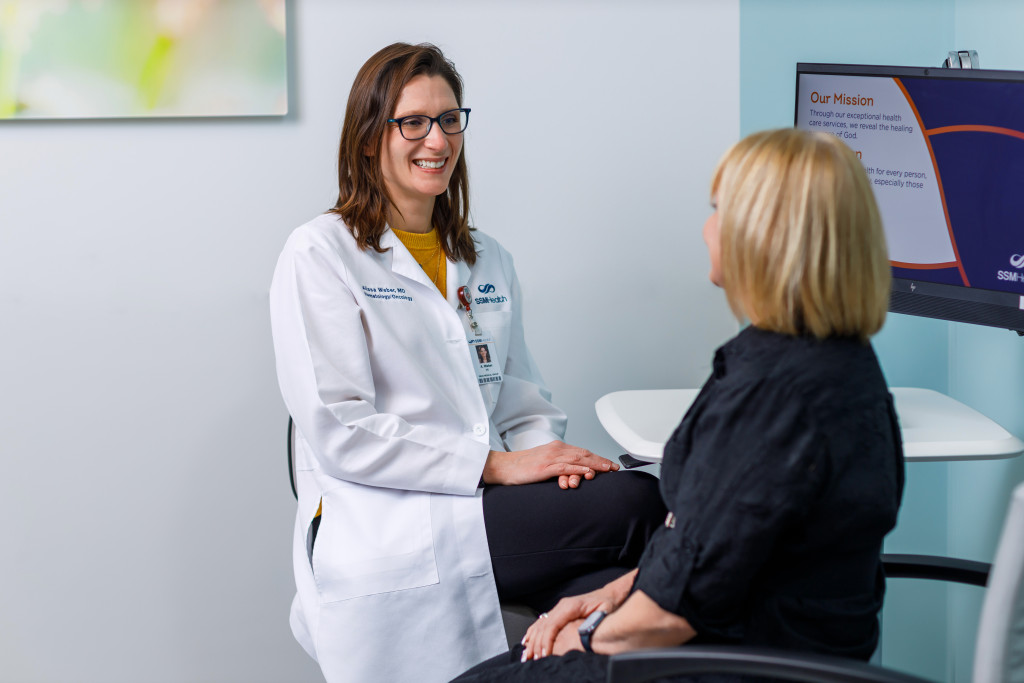You’re not alone if you skipped all the recommended cancer screenings since 2020, but now it’s time to get back on schedule.
An estimated 9.4 million cancer screenings were skipped in 2020 according to the National Cancer Institute and many people still have not gotten back to routine testing. Now experts from the American College of Surgeons in collaboration with the American Cancer Society are strategizing to find ways to get Americans to pre-pandemic cancer screening levels. If you’ve let cancer tests slide for the last few years, Dr. Alissa Weber, an oncologist at SSM Health says there are some compelling reasons to get back on track. She shares some insight on a variety of types of cancer.

FINDING CANCER IN CURABLE STAGES AND REQUIRING LESS TOXIC TREATMENTS
“Screening for cancer is important because it enables detection of cancer cells, or even pre-cancer cells at an early stage, when treatments could still be curative,” says Dr. Weber. In some cancers, like colon cancer, symptoms are not present until the disease is advanced, so early detection can also find cancer in curable stages.”
Sometimes, treatments aimed at earlier-stage cancers may be less intensive and less toxic to patients. Chemotherapy uses special drugs to shrink or kill cancer cells. Radiation therapy kills these cells with high-energy beams such as X-rays or protons. These therapies can be difficult to endure, but may be unnecessary if the cancer is caught early enough.
“For melanoma, colon cancer, and lung cancer specifically, surgery alone could be curative. Another example is cervical cancer, which is important to catch early as more advanced tumors require aggressive treatment that will affect fertility for younger women and it’s easy to treat in early or precancerous stages,” says Dr. Weber.

FAMILY HISTORY MAY MEAN YOU’RE AT RISK AT A YOUNGER AGE
The age at which you should begin screenings for different cancers varies by cancer type depending on the average age of incidence of each particular cancer and whether there is a history of cancer in your family. If there is a family history of certain cancers in the family, it may be appropriate to begin screenings at a younger age. Talk to your doctor about what age is appropriate for you to start screenings for various cancers.
Current recommendations from the US Preventive Services Task Force (USPSTF):
- screening for colorectal cancers at age 45
- lung cancer at 50-80 for people with at least a 20-pack per year smoking history and currently smoke or have quit within the last 15 years
- cervical cancer screening at age 21-65.
- breast cancer screening for women aged 45-74.
”While screening in women aged 40-49 may reduce the risk for breast cancer death, there is also a higher rate of false-positive results and unnecessary biopsies, so one must consider the balance of benefits and harms, which is likely to improve as women move from their early to late 40s. I generally do recommend screening starting at age 40, and especially for women with a first-degree relative with breast cancer. This is also supported by the National Cancer Center Network guidelines.”
NO FAMILY HISTORY?
“The vast majority of cancers occur in patients who have no family history of cancer. Therefore, I definitely recommend all adults follow guidelines for age-appropriate screening.”